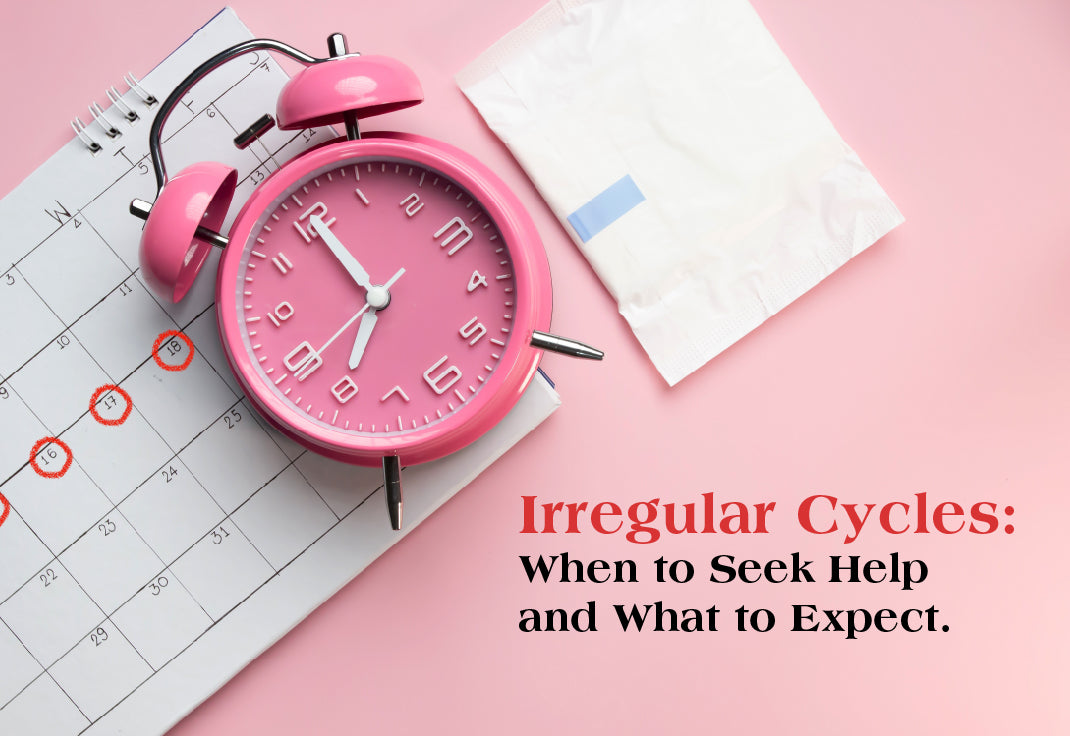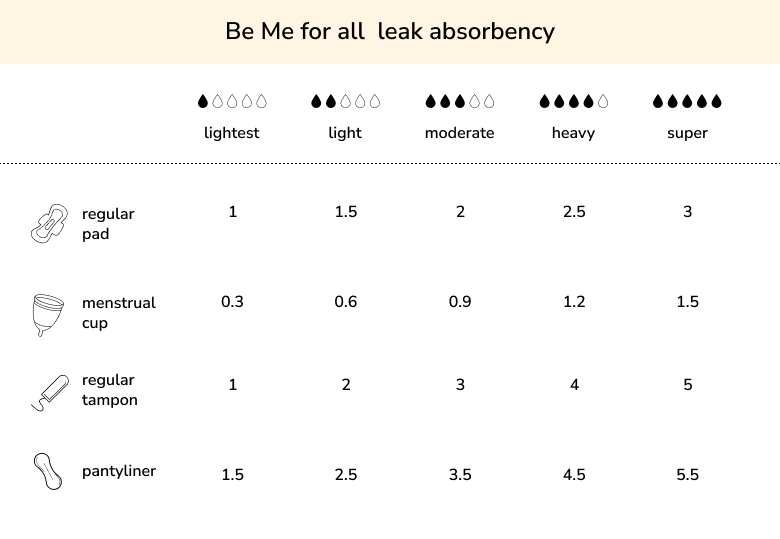
Irregular Cycles: When to Seek Help and What to Expect.
Published At
We all have had moments where our periods do not seem to follow their own rules—sometimes showing up early, late, or skipping an entire month. Though irregular periods occasionally are normal frequent irregularities may be a sign of something serious. Whether it is an extended gap between the cycles, sudden spotting, or unusually heavy bleeding, your body could be telling you it's time to pay attention.
What Is An Irregular Menstrual Cycle?
A regular menstrual cycle consists of three stages: the follicular phase, the ovulation phase, and the luteal phase. A healthy cycle generally lasts four to seven days and happens at a cycle of every 28 days. Examples of irregular periods include menstrual cycles that happen fewer than 21 days or more than 35 days apart, menstrual flow is heavier or lighter than usual, and missing three or more periods in a row.
What Causes Irregular Cycles?

Hormonal imbalance often results in irregular periods. Here's a breakdown of common cause:
Hormonal Imbalance: The luteal phase when progesterone overwhelms, or the follicular phase, where estrogen grows to prepare egg, can be disrupted by imbalanced hormones.
Chronic stress: Chronic stress can affect the regularity of your ovulation phase resulting in missed or irregular periods.
Thyroid Disorders: Hyperthyroidism and hypothyroidism both can interrupt the luteal phase, affecting the duration and intensity of the menstrual cycle.
PCOS: Due to the overproduction of male hormones and skipped ovulation phases this common condition leads to irregular periods.
Other reasons for Irregular menstruation
Pregnancy complications or breastfeeding can be a major reason for irregular periods . Other reasons are:
Contraceptive birth control pills: Birth control pills prevent pregnancy by keeping your ovaries from releasing eggs and going on and off on such contraceptive pills affects your menstruation.
Medications: Medications such as anticoagulant drugs which are also used as blood thinners or steroids affect your menstrual cycle as they disrupt the phases of your cycle like the ovulation phase, follicular phase, and luteal phase.
Miscarriage or ectopic pregnancy: After miscarriage your menstrual cycle changes because of hormonal imbalances and so after an ectopic pregnancy in where when a fertilized egg attaches outside the uterus, usually in a fallopian tube. After an ectopic pregnancy, your menstrual cycle may come up to three weeks later.
Scarring, Surgery, or Blockages: Such things in your ovaries, uterus, or fallopian tubes affect the menstrual cycle making them irregular.
How To Cure Irregular Periods
Diagnosis and Tests

Pelvic ultrasound: An ultrasound lets you find out the reason for irregular heavy or light forms of bleeding resulting from polyps, an ovarian cyst, or uterine fibroids.
Endometrial biopsy: In this procedure, the doctor takes a small part of the tissue from the uterus lining which helps in the diagnosis of conditions such as hormonal disorders, endometriosis, or even precancerous cells.
Hysteroscopy:This process lets the healthcare professionals see inside your uterus which helps them diagnose the root cause of abnormal bleeding.
Lifestyle changes for a regular healthy period
Eating a balanced diet
Stress repeving activities
Sleep good
Exercising regularly
While occasional irregular periods might not be a big deal if it gets continuous then it might be serious. It is always good to track your cycle and listen to the signs that your body gives because your body knows what's best for you. Remember, your menstrual cycle is your body's way of communicating- so let's keep this conversation going on our community page.









